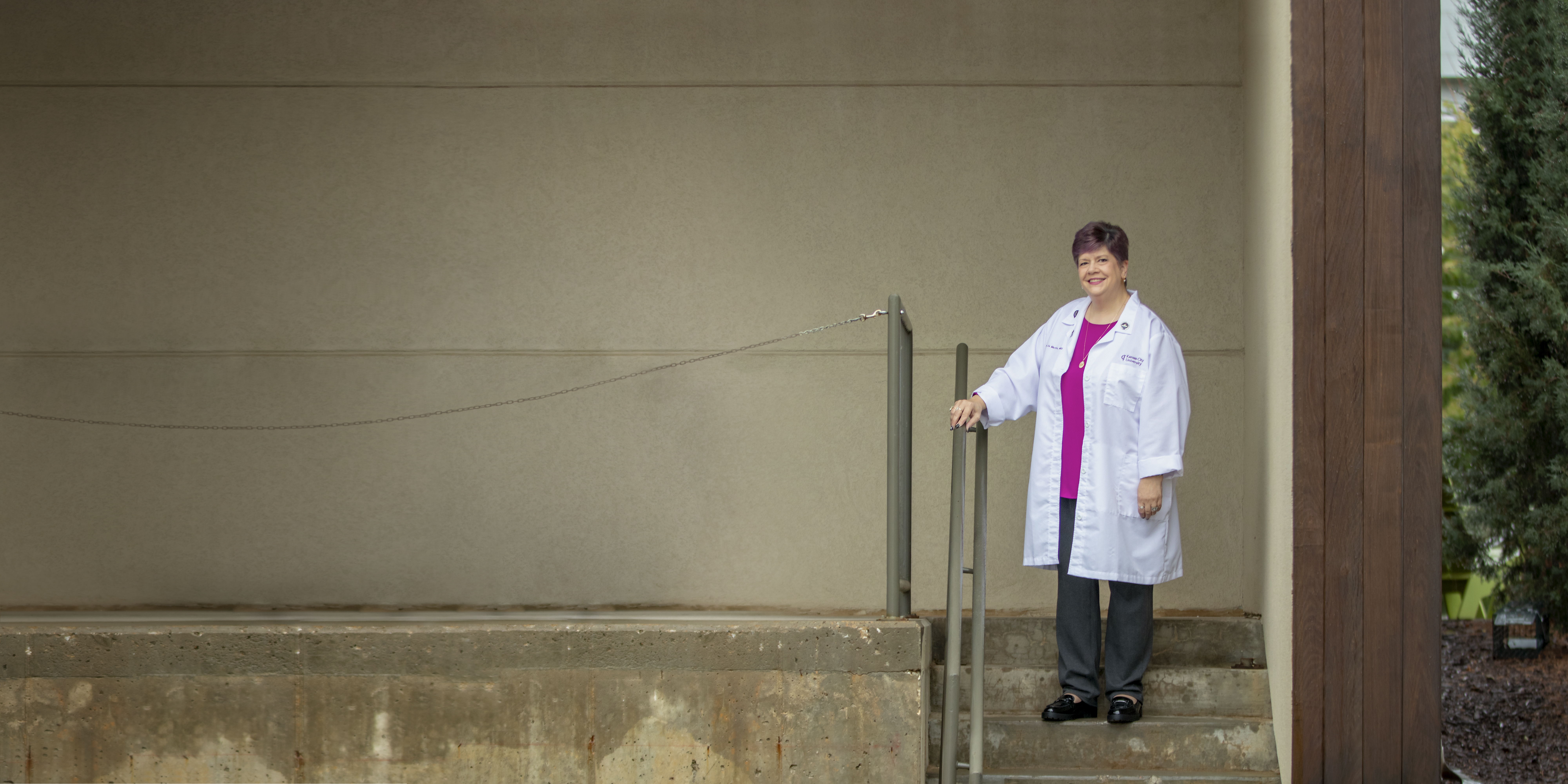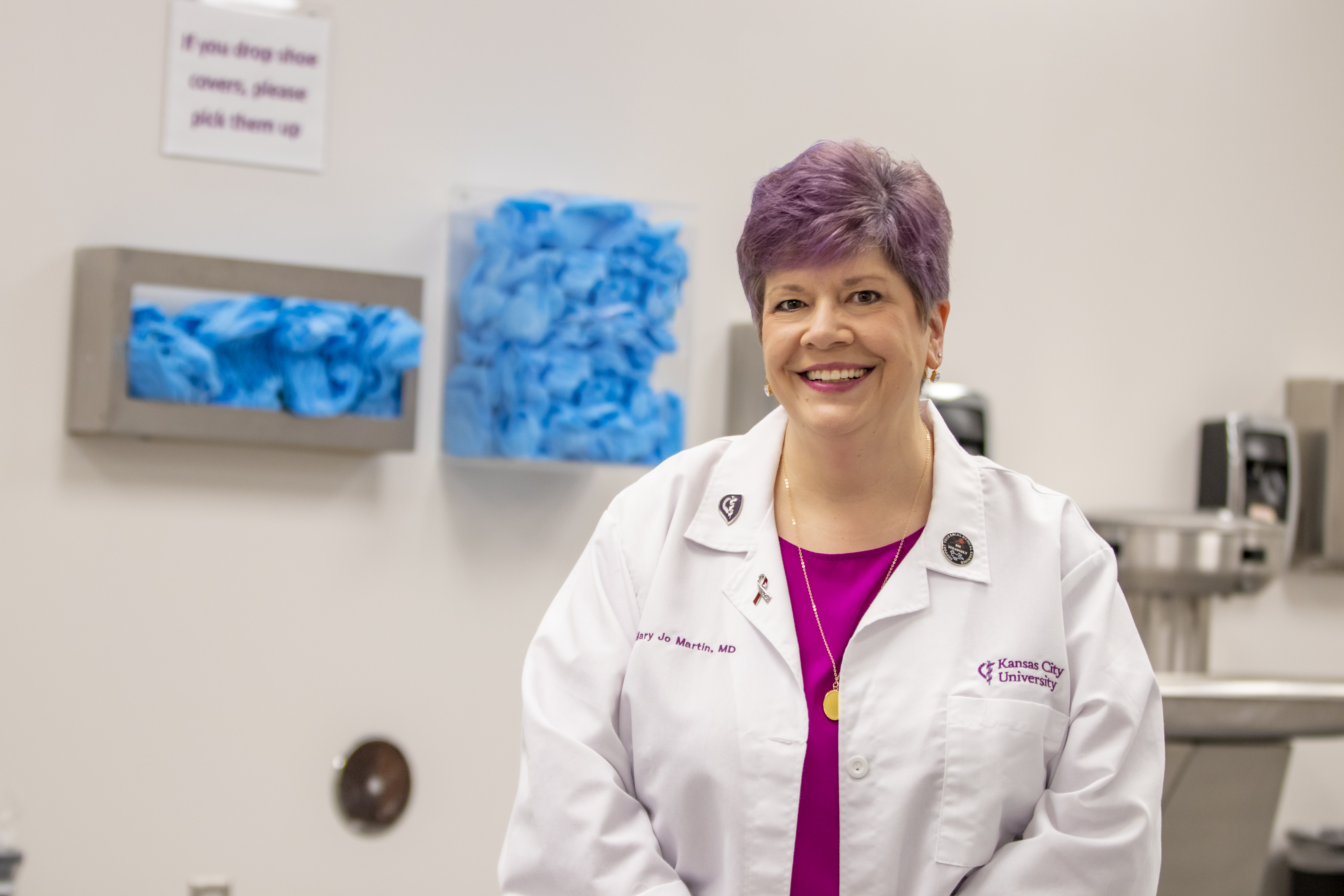Mary Jo Martin, MD, is assistant professor of Pathology on the KCU-Joplin campus. She served as a medical examiner before joining KCU, uncovering details that led to justice and even confronting a murderer at the judge's bench.
Investigators originally thought an extreme asthma attack caused a 21-year-old woman’s death, but the persistence of a future KCU faculty member proved otherwise and brought justice to a Virginia murder victim.
DNA found under the victim’s broken fingernails and no evidence of asthma raised concerns for medical examiner Mary Jo Martin, MD. “I had to keep talking to the police again and again. I wasn’t going to let it go, because I knew it was a homicide,” she said.
Martin’s suspicions became more intense after learning a potential suspect with scratches on his face had spoken to police at the crime scene. Those scratches would later prove the victim was trying to ward off his attack. “It took me more than nine months to prove beyond a shadow of a doubt that the victim was murdered. She had worked in a pharmacy, so I did drug tests to prove she didn’t have anything in her system. I also had to prove she didn’t have asthma. She didn’t have a broken hyoid bone – a common indicator of strangulation in many cases – because hers had never fused. He strangled her, and I had to keep going in order to prove it,” Martin explained.
Martin’s investigative autopsy uncovered the dark reality of what really happened to the young woman, and the evidence she found eventually led to a murder conviction. “At the initial hearing, the judge had me at the bench, along with the murderer, and his lawyer between us. The murderer tried to intimidate me as I reported my findings to the judge,” she said. As a result of Martin’s hard work, the victim’s family found closure and secured justice for their loved one.
During her time as a student at Marshall University Joan C. Edwards School of Medicine, Martin discovered a passion for forensic pathology after a rotation at the medical examiner’s office. “I like puzzle solving. There is nothing more puzzling than receiving a body with no name or history and trying to fit all the pieces together,” she said. She has used her skills as a medical examiner to testify in homicide cases, identify unknown people and discover disease processes previously unnoticed.
While attending medical school, Martin was diagnosed with attention-deficit/hyperactivity disorder (ADHD) and dyslexia. The University asked her to assist with their Higher Education for Learning Problems (H.E.L.P.) program designed for medical students and residents with learning disabilities. The experience she gained from her time at Marshall University taught her to use her learning disabilities as super skills– skills she has applied to her career in forensic pathology and teaching.
Martin says she may have to study longer and harder, but a number of times her ADHD has allowed her to see details others may not have noticed. “I document everything, and I never make assumptions,” she remarked. She also applies the way she learns to the way she teaches KCU students by using storytelling and hands-on experiences in the classroom. “If you have never seen something and you don’t know anything about it, you can’t diagnose it,” she said. “That is what I try to get through to the students.”




_20230327142901_0.jpg?w=140&h=140)
(0) Comments